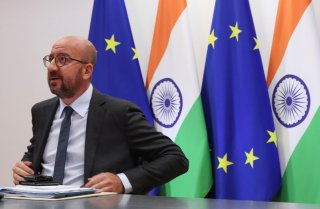India Could Make or Break the EU’s Global Gateway
India’s growing conflict with China, its strategic evolution, and its eagerness to expand its outreach to Europe, along with the EU’s intent to reduce its reliance on Chinese manufacturing and supply chains and to pursue strategic autonomy, have created the right conditions for a new mutually beneficial policy regime
Will Global Gateway Bridge the Gap between Europe and India?
Comprising over 11 percent of India’s total trade (2020), the EU ranks as its third-largest economic partner behind China and the United States (at around 12 percent each). At the same time, as a major and fast-growing global economy, India is the EU’s tenth largest trading partner, responsible for almost 2 percent of its total goods in 2020, well behind China (16.1 percent). However, the two parties still do not have an FTA, as many of the issues that plagued the 2007-2013 negotiations remain unresolved: Brussels views India’s trade regime and regulatory environment as “restrictive.” Nonetheless, the EU today recognizes India’s growing economic and political stature regionally and globally; its market offers tremendous business opportunities for European companies. Seen in tandem with the EU’s increased wariness about China’s intent and reach in Europe, the EU needs to overcome its biases toward the Indo-Pacific partners.
India’s pivotal role in countering piracy and maintaining maritime security and supply chains in the contested Indian Ocean is more reason why New Delhi is a natural partner for Europe. India and France are already two critical security players in the region. India’s (and Japan’s) calls for greater European security and military presence in the Indo-Pacific will need to be addressed sooner than later. India’s growing conflict with China, its evolution to becoming an outward-looking power, and eagerness to expand its outreach to Europe, along with the EU’s intent to reduce its reliance on Chinese manufacturing and supply chains and to pursue strategic autonomy, have created the right conditions for a new mutually beneficial policy regime—an opportune use of Global Gateway.
Dr. Jagannath Panda is a Research Fellow and Centre Coordinator for East Asia at the Manohar Parrikar Institute for Defence Studies and Analyses, New Delhi. Dr. Panda is the Series Editor for “Routledge Studies on Think Asia”.
This piece is the second part of a four-part series on EU’s Global Gateway Strategy factoring the Asian powers/bloc, primarily China, India, Japan and ASEAN respectively.
Image: Reuters.

